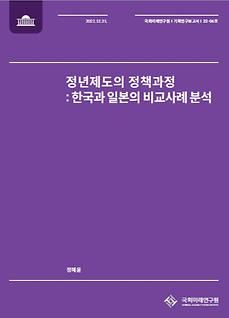
Korea is rapidly becoming an aging society, and by 2026, it will become a super-aged society, with 65-year-olds accounting for 20% of the population. There have been many discussions about the need to improve the employment system in general, including the retirement system, and various overseas-related systems have been introduced.
However, compared to research on the system itself, comparative research on systems from other countries on the process of creating policies for the elderly has been rare.
Although the social conditions differ from country to country, it is difficult to expect the same effect if only similar laws and systems are introduced. Furthermore, the system of extending the employment period of the elderly may cause conflicts of interest in various situations between companies and workers, between elderly workers and young workers, and between regular and non-regular workers. If the foundations of high-level coordination and compromise between actors are weak, the system will be difficult to sustain and the desired effects will not occur.
This research compares and analyzes the institutionalization process of the retirement system for those over 60 years old enforced in Korea with the case of Japan. Japan is a good example because it has experienced a declining birthrate and aging population before South Korea, and the conditions of the employment system are similar.
I will examine the differences in the process of discussion and decision by the Diet and corporatism such as the process of passing bills, and the speed of enforcement through Japanese cases and make comparisons to our system. Based on the results of the analysis, the alternatives of the decision process of Korea's retirement policy are suggested at the level of the National Assembly.